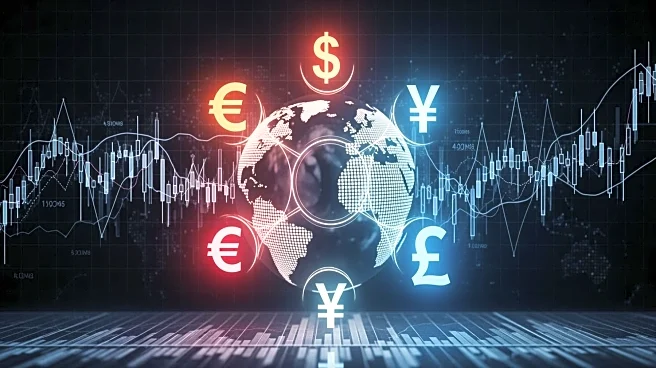What's Happening?
Treasury Secretary Scott Bessent has proposed a longer pause on high U.S. tariffs on Chinese goods in exchange for Beijing delaying its plan to tighten limits on critical rare earths. This proposal comes
amid a rebound in the U.S. dollar, with the DXY index showing strength over the past month. The U.S. Trade Representative, Jamieson Greer, expressed skepticism about Beijing's plan, suggesting it could disrupt trade in consumer products containing rare earths. Bessent anticipates a coordinated response from the U.S. and allies, emphasizing the inability of Chinese bureaucrats to manage global supply chains effectively. The proposal is set against a backdrop of cyclical strength in the U.S. dollar, with expectations of further Federal Reserve rate cuts by year-end.
Why It's Important?
The proposal to pause tariffs reflects ongoing trade tensions between the U.S. and China, particularly concerning rare earths, which are vital for various industries. The U.S. dollar's strength could impact global trade dynamics, as a stronger dollar makes U.S. exports more expensive and imports cheaper. This could affect U.S. manufacturers and exporters, potentially leading to shifts in trade balances. Additionally, the proposal highlights the strategic importance of rare earths in global supply chains, with potential implications for industries reliant on these materials. The U.S. dollar's strength, coupled with anticipated Fed rate cuts, could influence economic policy and market expectations.
What's Next?
If the tariff pause is implemented, it could lead to a temporary easing of trade tensions between the U.S. and China. However, the effectiveness of this strategy will depend on Beijing's response and the broader geopolitical context. The U.S. dollar's continued strength may prompt further analysis of its impact on trade and economic growth. Stakeholders, including policymakers and industry leaders, will likely monitor developments closely, assessing the implications for supply chains and market stability. The Federal Reserve's upcoming decisions on interest rates will also be crucial in shaping economic forecasts and investor sentiment.
Beyond the Headlines
The proposal to pause tariffs underscores the complex interplay between trade policy and economic strategy. It raises questions about the long-term sustainability of relying on tariffs as a tool for negotiating trade terms. The focus on rare earths highlights their critical role in technology and defense sectors, prompting discussions on supply chain resilience and diversification. The U.S. dollar's strength may also lead to broader debates on currency manipulation and its effects on global competitiveness. These developments could influence future trade agreements and economic policies, shaping the landscape of international commerce.









